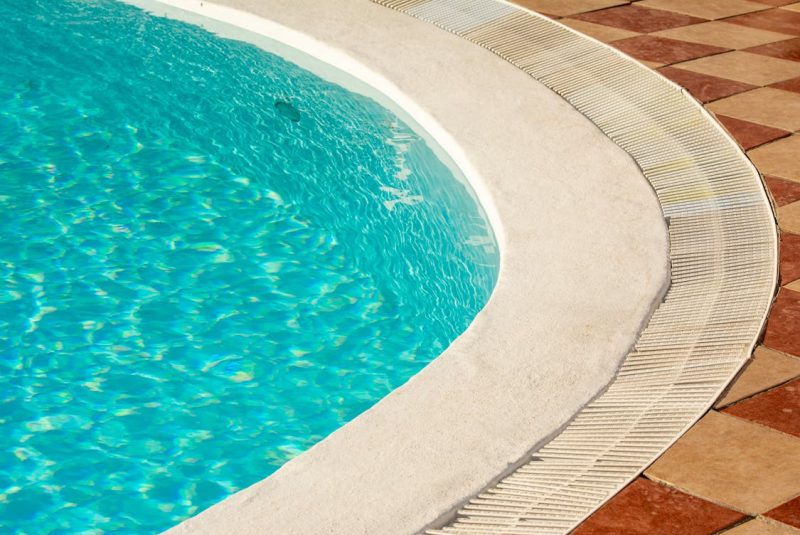Maintaining a swimming pool isn’t just about keeping the water clean and inviting. Regular inspections are vital to ensure safety, compliance with regulations, and optimal functioning of your pool.
Understanding how often these inspections should occur is essential for every pool owner.
The Basics of Pool Inspections
Pool inspections generally involve checking water quality, equipment functionality, and overall safety features. These checks can help identify potential issues before they escalate into costly repairs or safety hazards.
If you want the job handled by experts with local knowledge, scheduling professional Melbourne pool inspections is a smart step toward keeping your pool safe and compliant. Frequent inspections also contribute to a longer lifespan for your pool.
Frequency of Inspections
The frequency of pool inspections can vary widely based on several factors. Generally, a good rule of thumb is to have your pool inspected at least once a month, particularly during the peak swimming season.
This frequency can help catch small issues before they turn into major problems.
Seasonal Considerations
During the summer months, when the pool sees the most use, it’s wise to increase the inspection frequency. In contrast, during the winter months, when the pool is less active, you might scale back to quarterly inspections.
Understanding the seasonal dynamics of pool usage can help you create a tailored inspection schedule.
Types of Pool Inspections
Pool inspections can be categorized into a few different types, each focusing on various aspects of pool care. Regular maintenance checks, safety inspections, and compliance checks each serve their own purpose.
Maintenance Inspections
These are generally conducted monthly and involve checking chemical balances, cleaning the filtration system, and inspecting pool surfaces for wear and tear.
Maintenance inspections also encompass the pool’s circulation system, ensuring that water flows correctly and remains clean.
Safety Inspections
Safety inspections should be done at least twice a year. This type of inspection assesses the integrity of safety features such as fences, gates, and pool covers.
Any broken or malfunctioning safety equipment must be addressed immediately to prevent accidents.
Compliance Inspections
Depending on your local laws, compliance inspections may be required annually or biannually.
These inspections ensure your pool meets all local health and safety regulations. They often include checks for proper signage, safety equipment, and adherence to local codes.
Factors Influencing Inspection Frequency
Several factors can dictate how often you should inspect your pool. It’s essential to be aware of these elements so you can adjust your inspection schedule accordingly.
Pool Usage

The more a pool is used, the more often it should be inspected. Families with children or frequent pool parties may find that a weekly check is beneficial, especially during high-usage months.
Conversely, a rarely used pool can often go longer between inspections.
Weather Conditions
Weather plays a significant role in pool maintenance. Heavy rainfall or storms may introduce debris and contaminants into the pool, necessitating more frequent inspections.
If you live in an area with harsh weather conditions, adjusting your inspection schedule to account for these changes can be wise.
Pool Type
In-ground pools, above-ground pools, saltwater pools, and freshwater pools all have different maintenance needs.
For instance, saltwater pools might require additional inspections to check for corrosion or balance issues. Understanding your pool type can inform how often inspections should occur.
DIY Inspections vs. Professional Inspections
Many pool owners might wonder whether they should conduct inspections themselves or hire a professional. Each approach has its advantages and drawbacks.
DIY Inspections
Routine, simple inspections can often be done by the pool owner. Checking water clarity, testing chemical levels, and looking for visible signs of wear are all manageable tasks. Still, it requires a certain level of knowledge and awareness to be effective.
Professional Inspections
Bringing in a professional can be beneficial, especially for more complex issues. Certified pool technicians can perform thorough inspections and have the expertise to spot problems that an untrained eye might miss.
While this option comes with a cost, it can save you money in the long run by preventing major repairs.
Keeping a Logbook
Maintaining a logbook of inspections can be incredibly helpful.
Documenting the date, findings, and any actions taken creates a clear record that can be referenced in the future. It can also provide valuable information if you ever decide to sell your home.
Building a Routine
Adding inspections to your regular pool maintenance routine can help create consistency. If you designate a specific day each month for inspections, it’s less likely that you’ll forget.
This routine can also make it easier to track seasonal changes and adjust your schedule accordingly.
Using Technology
There are numerous apps and tools available that can simplify the inspection process. Many of these can help remind you of necessary checks, document findings, and even analyze chemical levels in real-time. Embracing technology can streamline your pool management.
The Importance of Compliance with Regulations
Local regulations concerning pool safety can vary significantly. Being informed about your specific area’s requirements ensures that you remain compliant and avoids any potential fines or legal issues.
Understanding Local Laws
Familiarizing yourself with local laws can save a lot of hassle down the line. Many municipalities have specific guidelines regarding fencing, pool covers, and water quality standards. Staying updated on these regulations is key to being a responsible pool owner.
Insurance and Liability
Regular inspections can also play a significant role in insurance matters. Some insurance policies may require proof of regular inspections to cover any liabilities related to pool accidents.
Keeping up with your inspections may not only ensure safety but can also protect you from potential legal issues.








